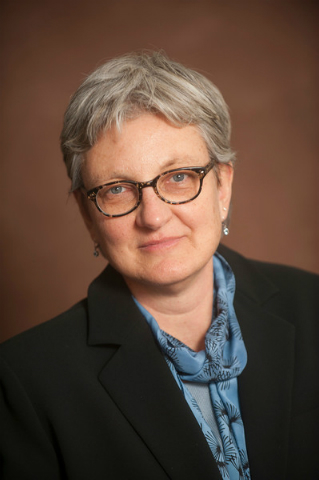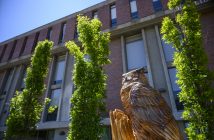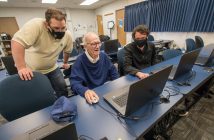Students, faculty, administrators and staff at Westfield State have a long tradition of engagement, both within our local communities and with communities beyond our borders. This year we have launched Westfield Engages, also known as WE, a strategic initiative to acknowledge, strengthen and expand these activities and opportunities.
Any day at the University could find:
- Students working with the Westfield River Watershed Association’s twice annual river cleanups.
- Faculty actively involved in the planning and implementation of trail amenities, including the installation of interpretive signs along Westfield’s Columbia Greenway Rail Trail.
- Academic department partnerships with the Westfield Athenaeum aiding in the preservation of city archives.
- Faculty, staff and students supporting the city’s food system in a variety of ways, including through a long-time partnership with the Westfield Food Pantry, which offers food drives and fresh food from the Westfield State garden during the growing season.
- Students travelling to Granada, Nicaragua, in partnership with La Esperanza Granada, a nonprofit that supports children’s education, to construct school buildings for local children. Since 2012, students have raised more than $15,000 to benefit the organization.
While long a part of the Westfield State campus culture, community engagement and civic learning have taken center stage in higher education. In 2012, the White House and the U.S. Department of Education called on colleges and universities to make civic learning and community engagement an explicit part of a college education. In 2014, Massachusetts became the first state to adopt a formal civic learning policy for public higher education. Vice President of Academic Affairs Marsha Marotta served on the task force that developed the policy.
Westfield Engages is an effort to build on and expand our existing relationships within the communities we serve. Further, it is an effort to assure that our students graduate with the knowledge and competencies needed to be informed and engaged citizens and to cultivate a strong sense of citizenship through meaningful participation in democratic processes, service and mutual aid. The University’s initiatives have been shaped in part by our participation in the American Democracy Project of the American Association of State Colleges and Universities, a multi-campus initiative focused on higher education’s role in preparing the next generation of informed, engaged citizens for our democracy.
The Massachusetts Department of Higher Education has supported our efforts with more than $200,000 in Performance Incentive Fund grants over the past two years. This funding is helping the University expand and institutionalize civic literacy and community engagement through officially designated course work. To date, almost 20 courses across our academic programs have been developed or substantially revised to meet our new civic engagement standards. We have also conducted trainings on assessment in civic engagement courses, best practices for engaging communities and writing assignments for civic learning.
Led by Assistant Professor of Geography and Regional Planning Brian Conz, our director of Civic Engagement, the University conducted its first week-long retreat in June 2014. The event drew more than 50 participants, representing both the University and community partners who gathered to plan the further integration of a culture of civic learning and engagement into our academic programs and expansion of community service opportunities.
The University’s service-learning courses are not restricted to local communities, or even the United States. For four years in a row, Westfield State students travelled to Nicaragua to assist an impoverished community by building a technology classroom for the elementary school, and nursing students and faculty members travelled to Guatemala to provide medical care and health education.
The Department of Higher Education consistently cites Westfield State as a leader in the state in the area of civic literacy and engagement, and we remain committed to building on that role. But we are also setting milestones to achieve, leveraging new opportunities, such as our participation in the President’s Interfaith and Community Service Campus Challenge sponsored by the U.S. Department of Education.
Our mission is to build on these efforts to foster cultural change, bringing the multitude of service and engagement activities, interdisciplinary collaborations and community connections to the center of our institution, consistent with our ongoing institutional commitment to elimination of barriers to higher education.
We look forward to continuing this discussion. To learn more about Westfield Engages, visit westfield.ma.edu/we.




